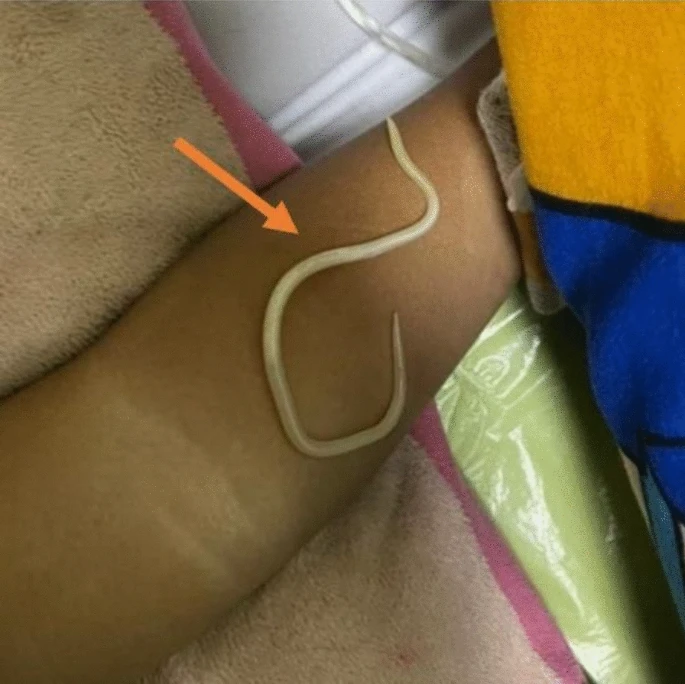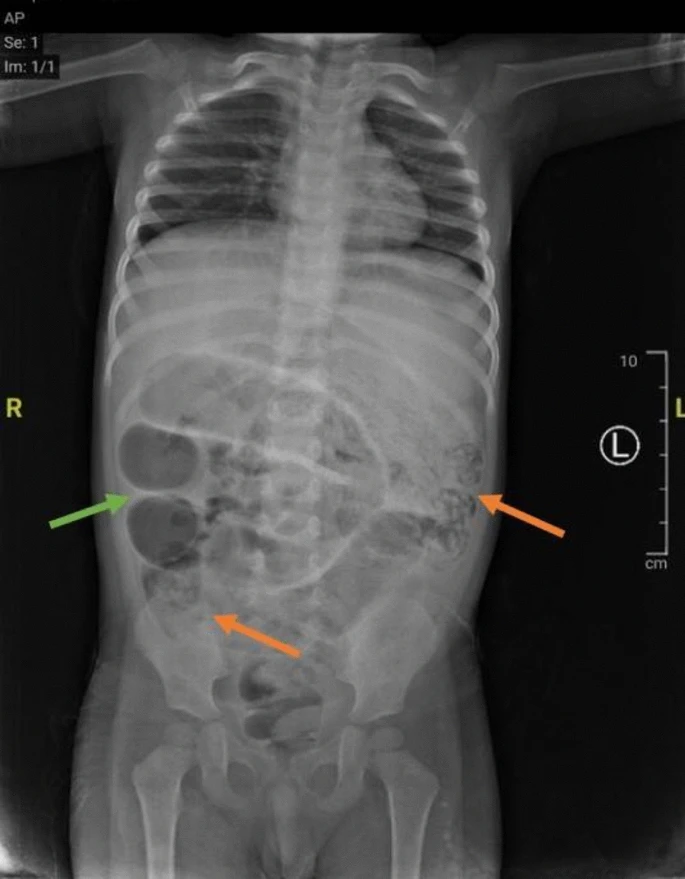A three-year-old boy in Indonesia had emergency surgery after doctors discovered multiple intestinal blockages caused by roundworms.
The child was brought to Dr Soebandi General Hospital in Jember when he experienced constipation, fever, and had not passed stools for three days.
Medical Intervention for Massive Intestinal Roundworm Blockage
Initially diagnosed with constipation, the situation took a shocking turn when the boy began vomiting live worms during his hospital stay. This prompted doctors to investigate further.

An abdominal x-ray revealed grey masses and excess gas in his gastrointestinal tract, indicating an intestinal obstruction.

Surgeons performed a laparotomy, making an incision in the boy’s abdomen, and found three separate areas of his small intestine blocked by parasites.
The medical team extracted the worms by making a small cut in the intestine approximately 50cm from where it joins the large bowel.
They then “milked” the parasites out, collecting three bowls full of the creatures.

Laboratory tests confirmed the parasites were Ascaris lumbricoides, a type of roundworm that can grow up to 35cm long and live in the human gut.

Poor Hygiene and Environmental Factors Behind Massive Infestation
The boy’s medical history revealed he had been suffering from diarrhea and fever a week before hospital admission and had previously been diagnosed with a urinary tract infection at a primary care facility.
Blood tests showed the child was suffering from anemia, a common warning sign of parasitic infection.
This occurs because some worms feed on blood in the intestines, leading to chronic blood loss and reduced iron levels.
According to the case report published in the Journal of Medical Case Reports on 10 April, doctors believe the boy contracted the parasites through poor hygiene practices and environmental exposure.
The study noted the child previously lived in Bali, where he regularly played in rivers without footwear.
After moving to Jember, he accompanied his grandparents to landfills where he picked up trash with his bare hands.
His mother typically hand-fed him, and he consumed unboiled water, both potential sources of parasite eggs.
The medical team emphasized that roundworm infections typically occur in “poor tropical and subtropical nations with low personal hygiene and sanitation.”
Humans become infected by accidentally ingesting microscopic Ascaris lumbricoides eggs through contact with contaminated soil, food, or water.
Following the surgery, the boy received intravenous fluids, antibiotics, and parasite medications, including pyrantel pamoate tablets.
He was discharged from the hospital seven days after the procedure with a prescription for albendazole tablets, another intestinal parasite treatment.
Globally, up to one billion people—approximately one in eight—are infected with giant roundworms.
While many cases are mild, severe infestations can cause serious health problems, including intestinal perforation, which can be fatal if left untreated.




